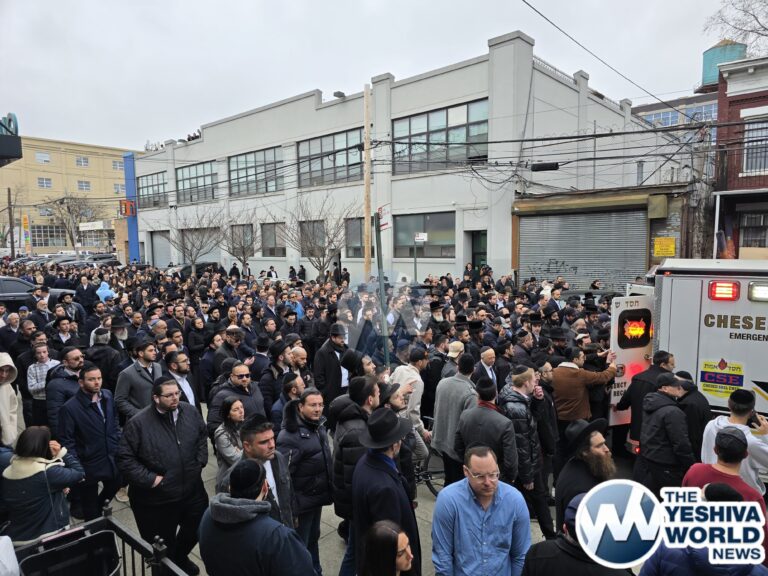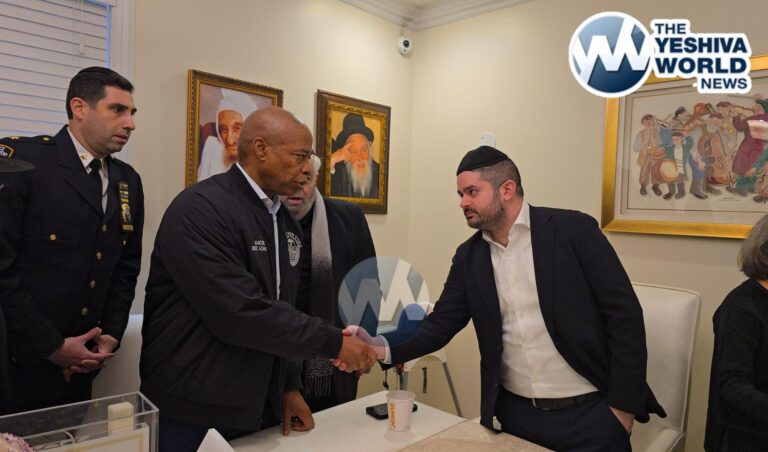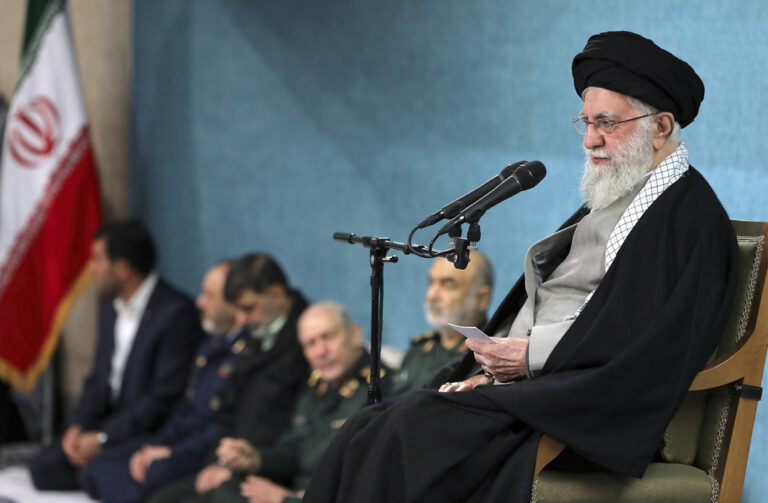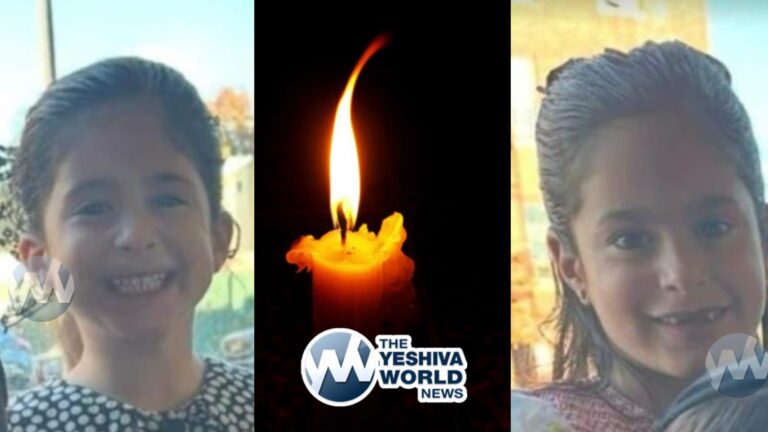 Just over a month ago, Shlomo Yehuda Rechnitz made a rare and direct appeal in these pages. The cause that prompted him to abandon his usual policy of privacy: the pain of increasing numbers of girls who remain single, in a shidduch system that brings unending distress to thousands.
Just over a month ago, Shlomo Yehuda Rechnitz made a rare and direct appeal in these pages. The cause that prompted him to abandon his usual policy of privacy: the pain of increasing numbers of girls who remain single, in a shidduch system that brings unending distress to thousands.
Despite the sustained feedback of more than three thousand readers who took the plea to heart, and a new receptiveness among many to explore creative solutions, it’s apparent that a problem of such complexity and immensity cannot be solved with one magazine feature alone. The required change in attitudes, approach, social mores, and standards is an ongoing process that we as a community must undertake together.
While change can be wrought through authoritative instructions, it’s often achieved in less dramatic ways — through gently altered attitudes and small incremental steps. In this case, change is being pursued on many levels and in many spheres. It’s a process.
We are committed to the process, and to continuing the conversation. In the following pages, Shlomo Yehuda Rechnitz shares an update on the progress that’s been made in the weeks since he turned to the public to place the shidduch catastrophe at the top of our agenda. The focus is both systemic and individual, with some changes on the institutional level, and others of the small incremental sort. As we look forward to a sweet new year, we pray that we keep moving forward in the direction of progress, and that we merit a year of yeshuos in every sphere — as a klal, as parents, as founders of the future homes of our nation, and as the individual children of an all-powerful Creator.
On every morning of the month that has just come to a close, we were reminded by the kol shofar of Chodesh Elul’s presence. We’ve tried our best to prepare ourselves for the joyous yet fearful Yom Hadin.
Hopefully, the 3,500-plus responses that poured in following my first article about the Shidduch Crisis — responses saturated with so many individuals’ concern for our sisters, daughters, and friends, yearning to suggest an eitzah, offers to personally help by contributing time or money to bring this crisis to an end — will serve both as a chizuk to Klal Yisrael and as a force advocating for us during these Yemei Hadin, as each one of our trembling neshamos pass like sheep under the Eibeshter’s staff.
The hearts of Klal Yisrael are clearly crying out. Not many of us particularly like putting pen to paper (or finger to keyboard) in a public forum. However, the sheer volume of interest, the eagerness and willingness to help, made me want to run out into the street and scream at the top of my lungs, “Mi k’amcha Yisrael.” While I would love to have read each and every response, I have not yet had the time, but I do plan b’ezras Hashem to read through every single one, as I believe that any person, especially someone who took the time to write, must have insights and ideas that are worthy of consideration.
I’d like to first clarify one point from my previous article where my intentions may have been misconstrued or misunderstood. I’ve received some comments questioning my sensitivity, or lack thereof, toward “older girls,” as I pointed out a very depressing statistic regarding the chances of a girl over the age of 25 getting married. Just two days after the article was released, I received correspondence from a few girls (or their parents) relaying the hurt they were feeling. I immediately posted an apology online apologizing to those who were hurt, asking for their mechilah, but more importantly explaining my thought process.
While I would retract the statistic if I could, I can’t say that it was an oversight. I carefully weighed the potential fallout. I spoke to daas Torah and a few professionals in the field and subsequently decided to include it, as I felt the ensuing distress would be a small sacrifice when compared to the awareness, knowledge, and reaction it would engender among the general public. And reaction there was! People from all facets of acheinu Bnei Yisrael, from the most diverse locations, e-mailed, called, and asked what they can do to help. Many more people than I would originally have expected now realized the severity of the issue.
Looking back, do I feel it was wrong? I would have to answer that while I had a strong argument to quote the statistics, I didn’t have the right to hurt even one girl, and for that I ask mechilah. However, I will do everything in my power to convince those who were offended that including this statistic will ultimately benefit the situation, as I’m convinced, and I give my bircas hedyot, that with Hashem’s help, every one of them will find her bashert.
What I can say with certainty, however, is that I’ve had calls from and discussions with parents in the last few weeks, and there are definitely the beginnings of a change in attitude regarding the age when boys should start dating. I’ve actually made it a point to speak to the boys who reach out to me, to understand their apprehensions and feelings. What was so interesting to note was that over 75 percent of the bochurim who contacted me told me that conceptually they had no problem dating at the age of 20 or 21, but they pretty much all expressed the same sentiment. They all feared the same scenario. They weren’t willing to risk “ruining their reputation” by putting out the word that they were ready for shidduchim, because usually when a 20-year-old yeshivah bochur is in the parshah, it means that something “must” be wrong with him. The inevitable comments range from “Why isn’t he happy in yeshivah?” to “Does he have a learning disability?” to “He’s probably ADD” to “Is he even in yeshivah full-time, or does he work in the bakery in the afternoon?”
Numbers and Mentors
Immediately after the first article’s publication, I spent hours on the phone and in meetings with many of the roshei yeshivah. Every one of them clearly understands the issues and the negative circumstances that can chas v’shalom result in the inevitable implosion of the bas Yisrael’s role in Klal Yisrael, as we currently know it. I was very encouraged that every rosh yeshivah considered the issue at hand a top priority. It wasn’t a rare occasion that after discussing the breadth and depth of the situation, a rosh yeshivah would get teary-eyed and bury his head in his hands. At the time that I am writing this article, I, along with other askanim, have participated in and know of tens of meetings and phone conversations between the roshei yeshivah. Understandably, they have many considerations and concerns regarding their bochurim that they must strongly factor in any decision. One thing is obvious. There are no simple answers, and while I’m not fit to make any decisions, I’m confident that in the near future, there will be significant changes coming from the people we look up to. At this point, I see my role as one who is able to help facilitate continued discussions, arrange meetings, and be their “boots on the ground.”
Focusing on any possible way to reduce the age gap, I, along with Rabbi Aaron Kotler of Lakewood, did an exact study on the average length of time it takes for a bochur to get engaged, once he enters shidduchim. The average time is approximately ten months. Now, ten months is relative. Among the umos ha’olam, it may seem exaggeratedly short when their process can take ten years. For some chassidim l’havdil, it may seem ludicrously long, when their beshau process can take ten minutes. I hope you forgive me for being extreme in my numbers; I’m simply trying to express a point.
From interviews with the busier shadchanim in Lakewood, I gleaned that approximately one boy in five gets engaged to the first girl he meets. Which leads to the question: What is happening with those other bochurim? Are they sometimes simply not dating their bashert? Perhaps. Are their expectations unrealistic? Possibly. Do they sometimes just not know what they should be feeling and need hadrachah? Probably. After discussions with several roshei yeshivah including the Lakewood Rosh Hayeshivah, Harav Malkiel Kotler shlita (who has taken an immense interest in solving this issue), I asked the Lakewood yeshivah, and they have agreed, to oversee the hiring of three qualified madrichim. These experienced yungeleit, who understand and deal with shalom bayis issues on a daily basis, will serve as a resource for any bochur who wants to confidentially discuss the shidduch process in general, talk through a particular situation, or even have his hand held through the entire process. (It is our hope that they will replace the 23-year-old “madrichim” from “the Irv,” who are kind enough to wait up for their returning friends to share their invaluable advice, or their own experience with that same girl.)
Small Steps, Big Dreams
Unfortunately, we all personally know girls over the age of 24 who have not yet found their bashert. They’re part of our families and among our good friends. While there are many explanations and disagreements as to what is causing the Shidduch Crisis to grow, we can all agree that every year the variance is growing and a bigger percentage of girls are remaining single.
There are several avenues that we are pursuing, which I’d like to share with you here. I’d like to preface this list with a request to one and all, to submit any ideas that you feel can help our precious bnos Yisrael.
1. As mentioned in the last article, we have offered for the year of 5775 to supplement the amount of shadchanus to $10,000 for anybody who makes a shidduch between a girl age 25 or older to a boy her age or younger. (As stated before, minimum requirements apply.)
2. We have hired five shadchanim to deal exclusively with girls age 23 and over. These shadchanim will work together in one office in Lakewood, putting in full working hours, at a minimum. The mandate of this group is not just to redt a shidduch when something happens to pop into their head. They are to actively create a database of all the older single girls, including their profiles. As I’ve explained to these wonderful sheluchei mitzvah, the majority of their time will be spent looking for boys. Young men from all walks of life: bochurim from yeshivos that span the entire country. Bachelors who didn’t necessarily learn in those yeshivos that girls imagine their husbands to have learned in. There are boys out there.
As an example, while closely studying this issue, we learned that Anglo boys whose parents live in Eretz Yisrael have a harder time finding shidduchim. We were also contacted by JMA, the Jewish Matchmaking Alliance. They are a group that collaborates with most tristate Orthodox organizations and programs, and their sole purpose is to pool efforts, help connect people, and ultimately make shidduchim. Our shadchanim will be networking and collaborating with them to help set up shidduchim. Every girl, under the guidance of her parents and her rav, can decide which resources she prefers to use.
3. We’ve leased five new cars. Each of these cars, which are currently available in the tritate area, will come with an E-ZPass and a full tank of gas, and will be available free of charge to any bochur dating a girl who is at least 23 years old. While this might sound like a trivial move, some boys aren’t prepared to spend the money (approximately $150 all in) to cover a car rental and date if they feel that a girl is too “old” for them. This small change can hopefully make the playing field more level.
4. I had the fortune of meeting a very determined girl last week, who flew into Los Angeles for this purpose. Since she didn’t have an appointment, I didn’t have time available for her, but she persisted for over a week until a rebbi of mine — whom she met — suggested I find time to speak to her.
As an older single girl, she brought my attention to another facet of the issue: the challenges these girls face on a daily basis. While focusing on how to fix the Shidduch Crisis, we tend to forget that there are so many girls left wandering for direction, often feeling alone, without proper support. Many feel awkward living at home as they approach their 30s; many have no social structure that is comfortable for them. While there are organizations for nearly every challenge in Klal Yisrael (single motherhood, infertility, illness, etc.), there is no organization that addresses the emotional, physical, and spiritual needs of the older single girl in the yeshivah system.
We are launching a new exciting program to address this need, and I have chosen this persistent young woman to lead it. When speaking with her, you can’t help but notice her caring and sensitivity to other girls in her predicament. She is also a doer and doesn’t leave any stone unturned. All the information will be coming out shortly.
One might wonder what could possibly be different about this project from all others that have been formed to marry off our girls. The answer is quite simple. This program is not attempting to solve the Shidduch Crisis. It will be an all-encompassing network of support for older single girls offering guidance and inspiration, shiurim, shabbatonim, and other social activities.
Professional staff, mentors, and rabbanim will be working closely with the girls to infuse their lives with more purpose and opportunity. Workshops will be offered to the community, raising consciousness regarding the single girls’ crisis. Symposiums will be available to parents who feel isolated in their pain who also need a venue for support and direction. Furthermore, the program will assist girls who seek to live independently, supplying them with the practical resources to do so. Girls will be offered various chesed, kiruv, and leadership positions so that their lives become more meaningful while waiting for their bashert.
Established with daas Torah and the utmost sensitivity, this program will help rekindle the dampened spirit and alleviate the hopelessness that so many girls face. We will aim to restore the lost dignity and self-esteem of our bnos Yisrael who have been victims of an unfortunate, escalating catastrophe. Ultimately, their newfound emunah and optimism will encourage them to be more open-minded in shidduchim and explore possibilities in a different manner. With Hashem’s help, we will see many more kallahs as a result.
To oversee all these endeavors, I’ve created an organization named Eishes Lapidot, in memory of my maternal grandmother, Mrs. Rivka Lapidus a”h. Chazal tell us that Devorah Haneviah was called Eishes Lapidot because she prepared the neiros for the Mikdash. This organization is being founded to alleviate the crisis of older girls who have not yet married their bashert. Our goal is that they, too, should prepare the lights in their respective mikdash me’at. Further details about the organization will be made available immediately after Succos.
Statistics and Miracles
I’ve often wondered what it would be like to live in an era of outright miracles, as did our Avos, Imahos, and the earlier generations. True, every second of every day is a miracle. But these miracles are cloaked in teva, as part of the natural world, the way things are supposed to be.
Yet every now and then, if you look closely and discern major hishtadlus on our part to live, to exist, to be part of kiyum ha’olam, and fulfill Hashem’s Will, you might likewise glimpse an outright miracle, even in today’s day and age.
As someone in the business and financial world, I often marvel over a phenomenon like Kiryat Sefer. You can send in 100 of the world’s best accountants, actuaries, auditors, consultants, financial advisors, treasurers, and comptrollers and ask them to figure out how our precious avreichim and their families are making it through the month… or even the day. All the professionals will eventually leave, questioning what they’ve been doing their whole life. Even with all the tzedakah we have the zechus of sharing with them, in so many instances (many more than one would imagine), their expenses completely exceed their income. Some of these families may have a NIS 5,000 overdraft, but that’s an accumulation over numerous years of supporting large families, marrying off their children and usually buying them apartments. I’m in no way denying the poverty. This brand of Torah living comes without any excess gashmiyus, as the Rambam says, “Ein haTorah miskayemes elah b’mi shemeimis atzmo alehah.” But at the end of the day, after all the Torah lishmah and great hishtadlus to keep the world going, they survive — and more importantly, they live b’simchah gedolah. Their efforts are rewarded with unnatural blessing.
So as we all enter Rosh Hashanah, let us not forget to be mispallel for all of our bnos Yisrael. I find it interesting that in the well-known pizmon of B’Rosh Hashanah yikaseivun, almost all of the possible gezeiros, both good and bad, start with the word “Mi,” as in “Mi yichyeh, u’mi yamus; mi b’kitzo, u’mi lo b’kitzo.” However, when referring to the numbers of births, a different formula is used; instead of “Mi,” we find the word “kamah.” In contrast to the individual fates referenced in the rest of the pizmon, this phrasing gives us all an opportunity to daven for others. The word “kamah” allows us to daven for more than one type of person and more than one type of situation. It allows us to think of another population. For while there is the married woman who wants to have a child, there is also the single girl who longs for a child, too. May we all have them in mind this year during our davening, and may we all merit a kesivah v’chasimah tovah.
Yes, the numbers seem daunting, and it’s hard for us with our human perspective to envision any logical solution to this crisis. Yet as long as we let this hemorrhage continue, ignoring the underlying causes, then we cannot rely on an outright miracle. However, if we do our hishtadlus and fix the system and eradicate the cause of the problem, then we open the door for supernatural yeshuos. I believe with all my heart that if the Eibeshter sees us doing our hishtadlus for kiyum ha’olam — with large-scale societal changes as well as small-scale efforts to find a shidduch for one more friend or neighbor — then the Ribbono shel Olam will repay us by making the exception and granting us an outright miracle, eventually leading everyone to find his or her own bashert.
Why? It’s elementary. Because when an Infinite Being is in control, those numbers and statistics suddenly all become meaningless.











25 Responses
When Yakov came down to Mitzraim with 70 people, there were No female grandchildren, besides Yocheved, who was an infant, and Chishim who was deaf.
Where were all the Girl Einiklach?
The Miforshim say that just like their brothers got married to Non-Yiddishe girls from Knaan, they also got married to Non-Yiddishe boys from Knaan. They had to stay with their respective husbands in Eretz Knaan.
If I read his initial article correctly, his main suggestion was that the yeshiva world had to alter its current class/age system vis a vis what age group gets into what shiurim. The main roadblock that people could actully change was that the boys would have to be made available (and ready!) sooner. What boys of what ages got into which level of shiurim would have to chancge.
It made sense.
How does his “it’s apparent that a problem of such complexity and immensity cannot be solved with one magazine feature alone. The required change in attitudes, approach, social mores, and standards is an ongoing process that we as a community must undertake together.” address this?
His main point seemed to be that the boys can ready, the girls can be ready, but that the yeshiva institutions would have to “give”. Boys and girls can be prepared – but the immovable roadblock was the current yeshiva shiur strata/structure itself.
Sounds like he got a “no” from the powers that be.
A couple of my thoughts:
First of all many boys are quite immature and are not ready to get married at 20 or 21
Secondly many girls are looking for a specific type and not the quality of the boy
Many boys are looking for full support from the girl’s family and not everyone can and should have to undertake that
Another major crises that people are not talking about is the DIVORCE crises. This may or may not be connected to who is marrying whom, but it is rampant in every segment of the Orthodox community.
So before throwing people together so that girls may have babies, let’s try to make sure that those babies have daddies around to raise them.
I am not intending to denigrate the kavod of Roshei Yeshivos, our Torah leaders, who serve as our guides.
I question the degree of dependency when discussing the “shidduch crisis” on the input of the Roshei Yeshivos. Their opinions matter a lot. But they have an agenda, repeated all too often, that boys should remain in yeshiva without taking any steps toward careers of any kind. The boys then are not exactly optimum “schorah” for the girls, as they have been trained into lives of dependency and lack of productivity. The girls, who have been indoctrinated by their respective Bais Yaakovs to seek only learning boys often meet and reject many potential suitors as unable to raise a family without income. If there is a “Poppa Has Dough”, this becomes easier. Girls can easily reach age 23-25, having been unable to implement the teachings of their moros and mechanchos to take a learning boy, and here they are, alone, desperate, and denigrated for being somehow defective. The dominating belief system is actually supported by the mainstream body of Roshei Yeshivos and mechanchim, as well as the Bais Yaakovs, the seminaries, and mechanchos.
I value the input and Torah guidance of Roshei Yeshivos. However, their input has contributed handsomely to the “problem”. There is a great deal of other input needed to analyze the issues and propose solutions. Excluding them from the dialogue would be irresponsible, even heretical. But their role seems to be maximized, and perhaps it should be coupled with other sources of input and ideas.
Wondering why there is now mention of “older boys” in the article. Why shouldn’t we also be helped? 10000 for a shadchan who makes a shidduch with a 25 year old girl to her age or younger. If I’m 26 should I drop dead. I am not capable of marrying a 25 year old? What about the social needs of “older” young men? Do we not need a healthy social life too? Can someone rationally explain to me how can u solve a marriage crisis without taking into account the older young men? Not one mention of them at all?
Maybe hire Shadchanim for young men 25 and older. Wouldn’t that make more sense than marring 25 year olds to 20 year old boys?
Again, there is no shidduch crisis. There is a MIDDOS crisis. Also the boys parents are nuts with their demands. If parents were more reasonable and their daughters were taught better, there wouldn’t be a problem. Also how dare anyone put the word crisis with shidduchim? A crisis is people dying, the war in Eretz Yisroel, people starving. Frum- n- Fair is right. The divorce rate has sky rocketed. People should be more concerned with how many marriage are being broken, before starting to make more doomed ones.
http://www.theyeshivaworld.com/coffeeroom/topic/why-r-rechnitz-is-incorrect
There are many boys 23 and + that have been dating for a while (possibly even from the “new norm” of 21) and have their priorities in check, good boys and well balanced.
They just havent met the right one yet.
There’s a G-d in the world who decides when each boy get married, no matter how “good” “bad”, guided or not.
Seeking to combat the shidduch crisis and the despair many feel, Yismach, a shidduch organization for the Anglo-Charedi community in Israel, facilitates the process by connecting singles with over 40 distinguished shadchanim.
Yismach’s working model is to accept only professional and recognized shadchanim to ensure that an individual’s information is kept secure and confidential. By ensuring discretion and privacy, those in shidduchim can maintain their dignity. In the Yismach database, which is easily navigated by shadchanim, potential matches in the form of profiles are just a click away. In its first year alone, over 80 people on Yismach got engaged.
The clientele are primarily Charedi, though not exclusively, and Yismach has recently expanded its efforts internationally, with its aim to have shadchanim in every major city with a Jewish population.
Recognizing that their efforts only bear fruit with Siyata Dishmaya, Yismach combines their efforts with tefillah, as members of the Yismach staff daven throughout the year on a daily basis and at different Kivrei Tzadikim for its clients.
Yismach is endorsed in Israel by R’ Chaim Walkin, Mashgiach of Ateres Yisrael and in the US by R’ Aharon Feldman, Rosh Yeshiva of Ner Yisrael. Yismach services are free, and it has received several psaks that donations can be given to the organization from maaser money.
Wherever you are located in the world, sign up to Yismach at http://www.Yismach.com or call US number: (347) 761-3878 or Israel Number: 02-567-2313/ 0523-444-890
Here I go again.
Statistically, there are a little more than 10% more boys born every year then girls.
So make the cheshbon yourself: For every 2000 unwed girls you should have at least 2200 unwed boys.
Where are they? Swallowed in the Bermuda Triangle?
Ksiva vchasima tova
And may all the singke find their bashert very soon. Just a few points for thought.
1.Just all the people who believe we have a crisis and the number of girls are more than boys. There is a place called Israel where there are over 6 million jews living in that country. Baruch hashem they come out with a number of children being born the past year 90646 were boys, while 85584 were girls. So still even in 5774 there are less girls being born than boys.
2. I’m in no place to tell how anyone should spend his money. But it would make sense more to give the money to the couple and not the shadchanim, or at least divided up between the two.
3. If there is a crisis, are there less chasunahs every year. Are halls closing, caterings going out of business or the exact opposite is true?
3a. Also why the boys or girls not jumping on every shidduch they get? They are passeling up shidduchim because of the most ridiculous reasons.
3b. How much parents,friends, and relatives have affect and say on the most potential shidduch just because “that family!” Or some other reasons.
4. Who is really talking and guiding our youth and young adults about shidduchim? Is there a class or shiur given bkvious in any of our mosdos regarding this topic (specialy one to one, asking someone who are you looking for)? Is the a few classesc when someone hears at age 18-19 suffice with reality?
5. Taking to consideration that most boys are in yeshiva, and not seen by the community every week, unlike the girls who are in the community and are seen every day and on shabbos. Also what gemara says tav lmeitv tan do milemitav armelu. So pepole think what there are so many girls around.
5a. Also a boy which isn’t in yeshiva environment he is considered non existence.
6. Are we in touch with reality when comes to shidduchim? Are we going after our potential shidduch or just something glamours to brag to our friends and families.
Yes we have a crisis but in no way we are going to fix this up by the way we are tackling the problem.
Marrying a 25yr old boy with 27 year old girl is not going to solve the shalom bayis issues that are raised after marriage.
Neither a 25yr old boy marrying a 20 year old is going to solve the issues of after marriage.
But maybe we could…
Instead talk to our youth and finding really what goes on in their life, what expectations they have have what are their ideas….talking to them about what really marriage is about, what is important and what is tafel. Trying to make a shidduch work and not trying to passel a shidduch. Asking the hard questions now and not after marriage.
This is the real solution. But that would take a lot of time and efforts and a lot of blaming and bursting the bubble of oyr sweet and wonderful kids and ourselves. So we’re instead looking for quick fix and some how to get out of the blame. So we blame the age …….
Ksiva vchasima tova
To sefardi tahor:
“There’s a G-d in the world who decides when each boy get married, no matter how “good” “bad”, guided or not”
Very well said. Just don’t tell that to the statisticians.
As Reb Shlomo himself said when discussing how the Bnei Torah of Kiryat Sefer live & thrive: “But at the end of the day, after all the Torah lishmah and great hishtadlus to keep the world going, they survive — and more importantly, they live b’simchah gedolah. Their efforts are rewarded with unnatural blessing.”
Exactly. Do you know why? Because they are davuk to the Borei Olam and they have shtark Bitachon and don’t need statisticians to come in and ruin their lives. HKB”H doesn’t need all these Ben Adam “experts” to come & tell him how to run his world. When you bi’emes rely on the Aibishter, you are blessed with special Siyata Dishmaya.
P.S. I don’t know why its necessary to throw the 40+ singles under the bus. Doesn’t their pain & suffering deserve our attention? Only the 20 year old schnooks matter?
How do you get in touch with R’ Rechnitz? I would like to contact him…
#14. I’m related to him and it’s impossible. I guess unless you did what the girl in the article did.
Unrealistic requirements often prevent couples from even meeting each other. Some girls may want learners; but a baal midos may make a great spouse who supports Torah if not able to learn. A baalas tshuvah may be the right match. Do networking through friends if not through professional shadchanim. A son or daughter from a divorced home may make a wonderful spouse. Throw away your lists! Open your eyes to good, wholesome people with potential!
my son is a 24 year old yeshiva/learning boy and has been dating for a year. NOT ONE shadchan EVER mentioned a girl over 21. This is strang since i specifically ask for older girls or girls finished with school, so as to not have the additional “issue” with a ‘shver’ and support. Go figure!!!!!!!!!!!!
Quote “2. We have hired five shadchanim to deal exclusively with girls age 23 and over. These shadchanim will work together in one office in Lakewood, putting in full working hours, at a minimum.” Can someone make a great mitzvah and post their email address, so I can send them two profiles of boys (they are fine with me sending it to shadchonim) who would perfectly fit into that criteria- one is 27 and the other one 25 and both are happy to meet same age girls…
The real truth & maier; Yes, more males than females are born EXCEPT by shidduch age the # of female daters are more than males.
WHY? 1. Males are heavily injured & die in wars & terror attacks. 2. More males die in childhood accidents & car deaths. 3. A percentage of males choose bachelorhood or other life styles
So the equality figure is a non-brainier.
How about girls from middle-income families who want to marry learning boys and are ready willing and able to work to support them, but their fathers are not able to support? They are getting ZERO shidduch prospects. ZERO. Tinkering with the age gap will do nothing to change this reality.But it makes us feel good, so I guess we will keep talking about the age gap…
I have been trying to find out detailed information about the requirements for the shidduch that would result in thge shadchanas of $10,000. I emailed to [email protected] (the email address indicated in the mishpacha article), but did not hear back from him.
does anyone know where this detailed information can be found? it is nice to have this incentive, but if the details are not readily available, what is the point?
btw, i think shadchanim should try to always redt close in age shidduchim. i find that most boys today do not have a problem dating girls their age or a bit older. PS…i also have emailed two prominent shadchanim in lakewood telling them that i would be glad to set up boys who come their way who are machshiv Torah but working as these shadchanim said they usually only handle learning boys, but I have not heard back from them yet. there are plenty of solid frum girls out there who would be happy to marry boys who are college educated, working, and kovei itim l’Torah.
PS..if these two prominent lakewood shadchanim are reading this, i would be happy to hear from you about the working boys. thanks very much!
There is an obvious way to alleviate this situation, for those who are willing to do so. Even if one prefers to stick with things long expired, there is nevertheless a way to help, for example: There WAS a ban, fortunately ignored by Sefardim, by R. Gershon, limiting men to one wife. Again, hanging on to that which is any event expired, to the detriment of many, no need especially given the current situation ….. A lady cousin of mine says that she would like to help, she would be happy to help in this way, in part because she grew up the only girl amongst several brothers and this would allow her to be close with a ( sort of ) sister, but mainly she would like to help other women, she is Ashkenaziah and not into following that which has expired so typical of Ashkenazim especially regarding DIN.
I concur with the poster danost regarding acceptance of a man having more than one woman in his family. I have discussed this with both my Rabbi and Ishti and both agree with it the biggest challenge it seens is finding not just women who are willing but Shaddchanim who are willing to participate, we are Othordox Sephardi so obervance is just as much a concern with an additional ishti as it is a it is with a first one.
Yitzchak Mikhail
A second wife is a great remedy for the shidduch crisis being that there is an over flow of great girls like my self
I think there is a way to convince the boys to take more than one wife is tell them that there will be a second income. After all most Kollel families struggle with just one income